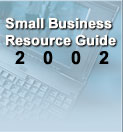 |
| |
| |
| |
| |
| |
| |
| |
| |
| |
| |
| |
| |
| |
| |
| |
|
Guidance for Special Types of BusinessesRules for Businesses in Certain Industries/Market Segment Specialization Program Guides (MSSP)/Market Segment Understandings (MSU)Farming Accounting Methods for Farmers An accounting method is a set of rules used to determine when and how income and expenses are reported. The term "accounting method" includes not only the overall method of accounting you use, but also the method of accounting you use for any material item. You must file your return using the same method you use for your tax records. You can use any of the following accounting methods:
Most farmers use the cash method because they find it easier to keep cash method records. However, if you use an inventory to figure gross income, you must use an accrual method of accounting for purchases and sales. Certain farm corporations and partnerships, or any tax shelter, cannot use the cash method. Under the cash method, you include all items of income (whether in the form of cash, property, or services) you actually or constructively received during the year in gross income for that year. If you receive property or services, you must include their fair market value in income. Under an accrual method of accounting, you generally report income in the year earned and deduct or capitalize expenses in the year incurred. The purpose of this method of accounting is to match income and expenses in the correct year. You generally include an amount as income for the tax year in which all events have occurred that fix your right to receive the income and you can determine the amount with reasonable accuracy. Special methods of accounting for certain items of income and expense. Crop method. If you do not harvest and dispose of your crop in the same tax year you plant it, you can, with IRS approval, use the crop method of accounting. Under this method, you deduct the entire cost of producing the crop, including the expense of seed or young plants, in the year you realize income from the crop. You cannot use this method for timber or any commodity subject to the uniform capitalization rules. Combination (Hybrid) Method You can generally use any combination of cash, accrual, and special methods of accounting if it clearly shows your income and you use it consistently. However, the following restrictions apply: 1. If an inventory is necessary to account for income, you must use an accrual method for purchases and sales. You can use the cash method for all other items of income and expense. See Farm Inventory. 2. If you use the cash method for figuring income, you must use the cash method for reporting your expenses. 3. If you use an accrual method for reporting expenses, you must use an accrual method for figuring your income. Any combination that uses the cash method is treated as the cash method. Important References: Publication 225 Farmer's Tax Guide |